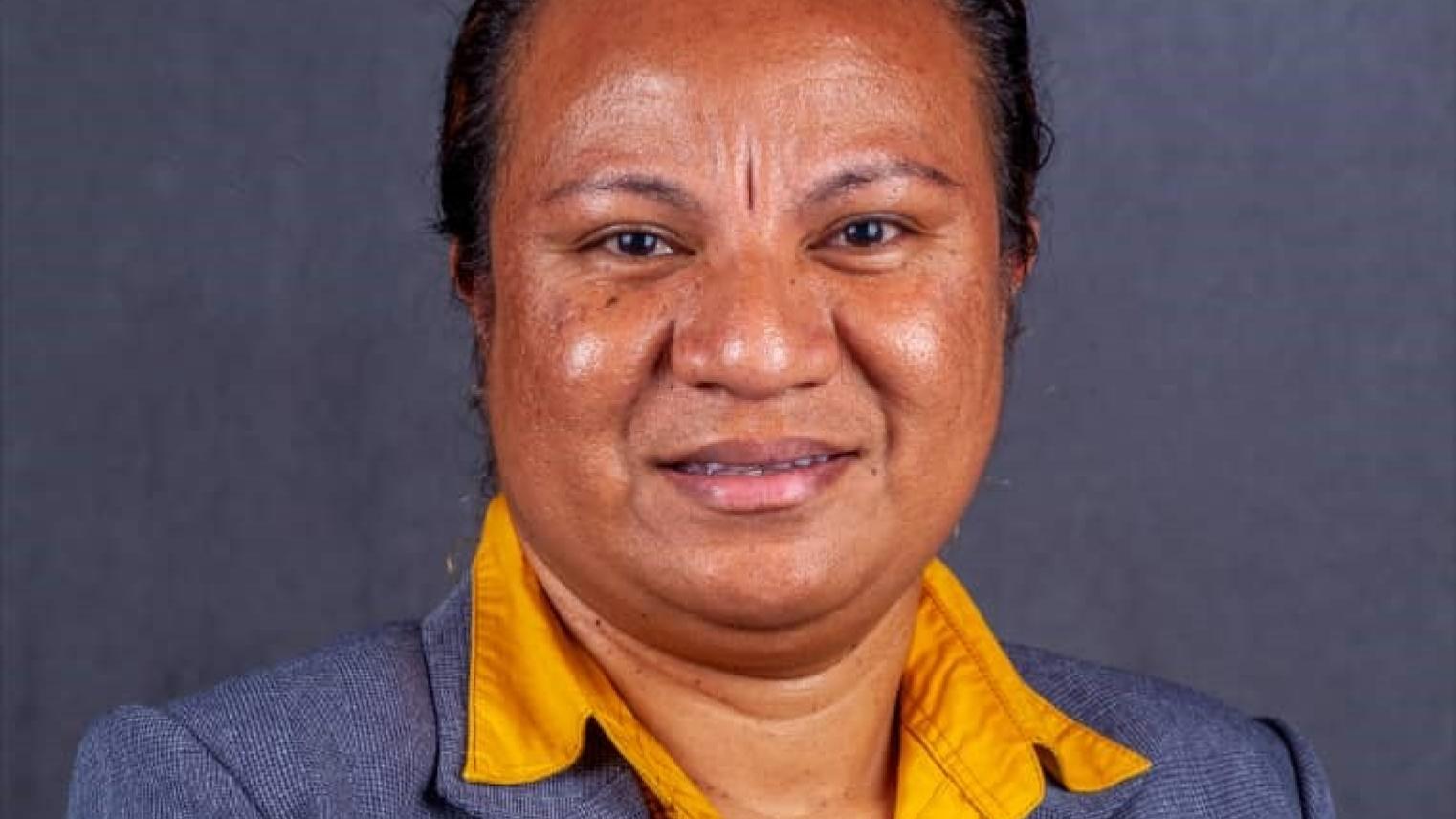Eight years after graduating, Logea Nao returns to PNG Update as a leading voice in sustainable land development

Logea Nao, a 2016 graduate of the Crawford School of Public Policy with a Master of International and Development Economics, is making significant strides in the field of sustainable land development in Papua New Guinea. As a Research Fellow at the Papua New Guinea National Research Institute, she is not only shaping policy but also helping to secure the future of her homeland, where tradition and progress must find a delicate balance.
As the PNG Update and the Crawford School Alumni Dialogue unfold in Port Moresby this week, we took the opportunity to get to know Logea better and hear about her journey, as she prepares to join fellow experts and alumni at these exciting events.
Hello Logea, can you please introduce yourself to our community?
Hello, my name is Logea Nao. I graduated with a Master of International and Development Economics from the Crawford School of Public Policy in July of 2016. I am currently employed by the Papua New Guinea National Research Institute as a Research Fellow, in the Sustainable Land Development Research Program. My research work focuses on the opportunities and challenges of land access, administration, planning and development, particularly on traditional or customary land. More than 50 percent of land in Papua New Guinea is owned by the traditional or customary landowners. This presents a unique set of opportunities and challenges for the development of Papua New Guinea, now and into the future.
Can you share your journey from Papua New Guinea to the ANU Crawford School of Public Policy? What inspired you to pursue studies at Crawford?
As an undergraduate student at the University of Papua New Guinea, I would attend the PNG Update (PNG Economic Update back then) and listen to academics and policy analysts from Papua New Guinea and from across the region (including, from the Crawford School) provide insights on the state of the PNG economy, and I would ponder doing the same in the future and contributing to a better future for my country. When an opportunity presented itself in 2013 through the Australia Awards Scholarship Program, Crawford School stood out for me as the perfect place to pursue studies that brought my background in economics and keen interest in public policy together, and to learn from the development experiences of other countries in the Asia Pacific Region and from other regions of the world. This experience, I believed would place me in good stead to contribute to the development of Papua New Guinea.
Have you been to the PNG Update before or are you planning to go this year?
I have been at the PNG Update before on multiple occasions, as a participant and a presenter. I presented a paper last year (2023) on the use of customary land titles in PNG as collateral for extension of credit by commercial banks for the development of customary land. I will be at the PNG Update this year (2024) as a participant as well as doing a presentation titled ‘A Credit Guarantee Facility for the development of customary land in Papua New Guinea: Prospects and Challenges’. This paper is follow-on work from the paper presented in 2023 and is part of PNG National Research Institute’s contributions to the ongoing reforms on customary land in Papua New Guinea.
What does it mean to you to be part of the Crawford School Alumni community, especially now that the School is coming to Port Moresby?
Being part of the Crawford School Alumni community, provides an opportunity to grow my professional network as well as to nurture relationships forged and links established during my time at the Crawford School.
Why do you think events like this are important for alumni and current students? What are you most looking forward to at the ANU Crawford School Alumni Dialogue?
Events such as the ANU Crawford School Alumni Dialogue serve as a platform for sharing of knowledge and generation of new ideas for the advancement of Papua New Guinea and Australia’s development aspirations as individual countries and as development partners. I am looking forward to meeting Crawford alumni in Papua New Guinea, including those in my professional circle, but especially those that I have not had the chance to meet before. Furthermore, I look forward to meeting the Crawford team from Canberra that are visiting.
What message would you like to share with other Crawford School alumni who may be attending the event or following it online?
Change begins and continues with me. In my line of work, doing nothing on customary land in Papua New Guinea is no longer an option. The future development and growth of Papua New Guinea will happen on customary land.
We would like to remind everyone interested in environmental and development issues within the Asia-Pacific region that you can watch Logea and other experts presenting at the PNG Update 2024 through the livestream on the University of Papua New Guinea’s Facebook page on Wednesday, 21 August and Thursday, 22 August 2024.
